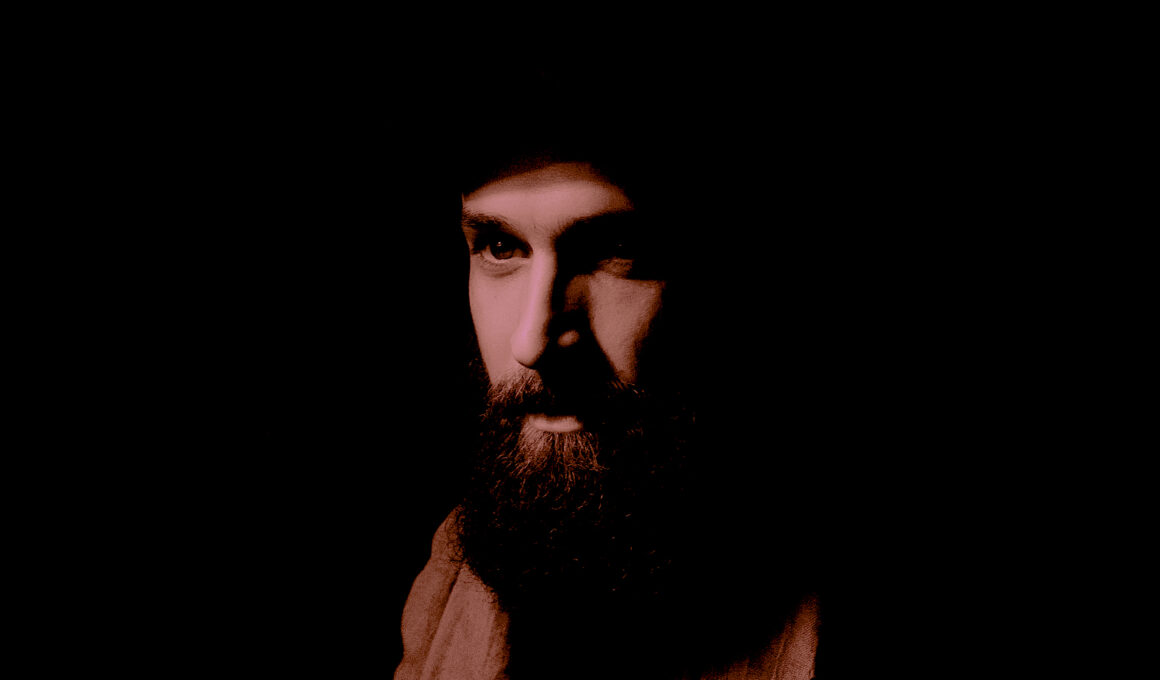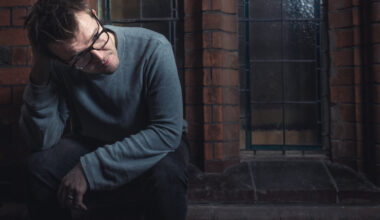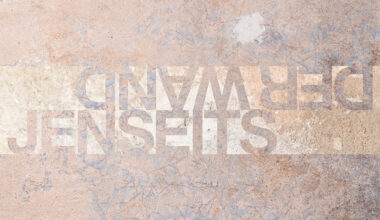Based in Berlin, nikoLFO, aka Niko de Paula Lefort, works as a musician, field recordist, installation artist and audio technologist. He is a resident host on Archipel Stations Community Radio, a co-founder of the record label Portals Editions and half of the Shaddah Tuum project.
Aurality -20°10’45.3176” -044°04’01.4329” is an array of sonic encounters that floats and wavers above the pliable junction of experimental electronics and field recording research.
The first release by French artist Niko de Paula Lefort for Famous Grapes Recordings reflects on the relationship between bioacoustics and harmonic space; it explores the effects of Time Lag Accumulation, a tape looping technique developed by Terry Riley and Pauline Oliveros through their pioneering work in the 1960s.
nikoLFO is performing on the “Famous Grapes Recordings x 20 Seconds Magazine” evening along with Grischa Lichtenberger at KM28, September 11th.
FACTS
1: There is three things in the world that are hidden from sight. The thing we call God is never born and does not die. No one has seen it, like no one has seen sound. You can only feel it. Like the wind, you can only feel. – Ustad Zia Fariduddin Dagar
2: I also heard a composition process which drew upon established vocabularies of traditions, abstracting (or appropriating) the foundations of different musicological (and ethnomusicological) structures, and which worked outward from these linguistic tap roots to articulate a (comprehensible) voice in a (new and) invented musical language. – Tony Conrad
3: Listen.
QUESTIONS
1. What is the biggest inspiration for your music?
How everything relates through vibrational fields. Some we can hear, some we can feel, some beyond our perception. Sound, light, electricity, electromagnetic waves, mycelium, trees, biophony, geophony, anthropophony… My project Aurality builds upon researches on bioacoustics, acoustemology (a relational approach to ethnomusicology), sounding situated knowledges and affect theory to create an ecologically aware listening experience, a space we are not alienated from our surrounding. The beauty of sound and other vibrations lies in its ability to connect, resonate. That we can feel and listen to.
My latest release, Aurality -20°10’45.3176” -044°04’01.4329”, looks at the emergence of some of these relations in the vibrational. It was recorded over 6 months in the Brazilian rainforest, and documents the encounter through dialog, listening, amplifying and resonating its sounding.
2. How and when did you get into making music?
For me listening is already an act of music making. So we would have to go back quite far in time… My mother told me that for the first 3 days of my life I didn’t open my eyes: I might already have been working on some music! In my early years I had a failed experience at a music conservatory, failed because of the western classical teaching system. I guess that settled my eager to find alternative ways of learning and doing music. Later on I studied guitar, always with some degree of improvisation, in blues, jazz, noise, free improv genres… I have been trying out many instruments, techniques, structures and sounding contexts over the years. There is always new paths to explore and new things to learn, and that’s exiting.
3. What are 5 of your favourite albums of all time?
John Coltrane – A Love Supreme
David Toop – Lost Shadows: In Defence Of The Soul (Yanomami Shamanism, Songs, Ritual)
Alla – Le Foundou de Béchar
Terry Riley – A Rainbow In Curved Air
Neil Young – Harvest
4. What do you associate with Berlin?
Change, movement, transformation. I feel like it is the only constant, as long as there is a flux of people and ideas.
5. What’s your favourite place in your town?
I have this permaculture project just outside of Berlin where I grow all this good stuff from May to October. I am very attached to the alternative time structure it offers. If you don’t take the time for observation and care, you can quickly fuck it up. It’s grounding. And you can make delicious food out of all your good work.
6. If there was no music in the world, what would you do instead?
I don’t believe in a world with no music, no sound, no vibration. I think we should wonder about what would happen if there is no music in the world. Here what Shaun Angeles Penangke, researcher and aboriginal from Australia, has to say about it: “Our songlines are our way to contribute to the health of the planet. When our old people sing they reinvigorate sites and it invigorates them at the same time… When the last Songman or Songwoman passes, whether it be in aboriginal Australia, whether it be in the Amazon forest, in Africa, Asia, wherever, something profound is going to happen, I don’t know what that is… Songlines hold the earth together in mysterious way.”
7. What was the last record/music you bought?
I haven’t bought music in a while, though I do a lot of listening online and in concerts. I think the last one was Jéricho, De Dreit Nien from the French collective La Nòvia.
8. Who would you most like to collaborate with?
La Nòvia, actually. I’ve been digging Occitan traditional music over the last years, in regards to modes, temperaments, drone and singing. I really like the way La Nòvia is keeping it alive. Also it is a tradition I can identify with. Another one is Alla, the oud master. Recently I did a session with Tony Elieh from Karkhana and I am looking forward to develop this collaboration. Eventually I would like to create a specific project with musicians and collectives from around, or linked to, the Mediterranean bassin as I am interested in the fluidity of sounding knowledge exchange in / from / to the area.
9. What was your best gig (as performer or spectator)?
Seeing Ornette Coleman perform was a life lesson.
10. How important is technology to your creative process?
I think you can’t really dissociate music and technology. They have a close relationship, also to their environment or context. They cross-influence each other, help each other, mistreat each other. Personally I like doing music as much with a bamboo stick and a stone than with a modular synthesiser. It’s a matter of what you have access to in which context. And what you do with it, for better or for worse. I tend to include the instrument building part into my creative process, would it be acoustic, electronic or digital or hybrid instruments. I usually seek for a processual and generative approach. Or pick a tool simply useful to a project, a practical or intuitive choice to experiment with or realise an idea.
11. Do you have siblings and how do they feel about your career/art?
I have a few siblings… I usually share my projects with them. Some appreciate part of it, some don’t seem to care, some ask questions… I guess that if I am okay with it, they are okay with it. And life goes on.
Photo © Marijn Degenaar


